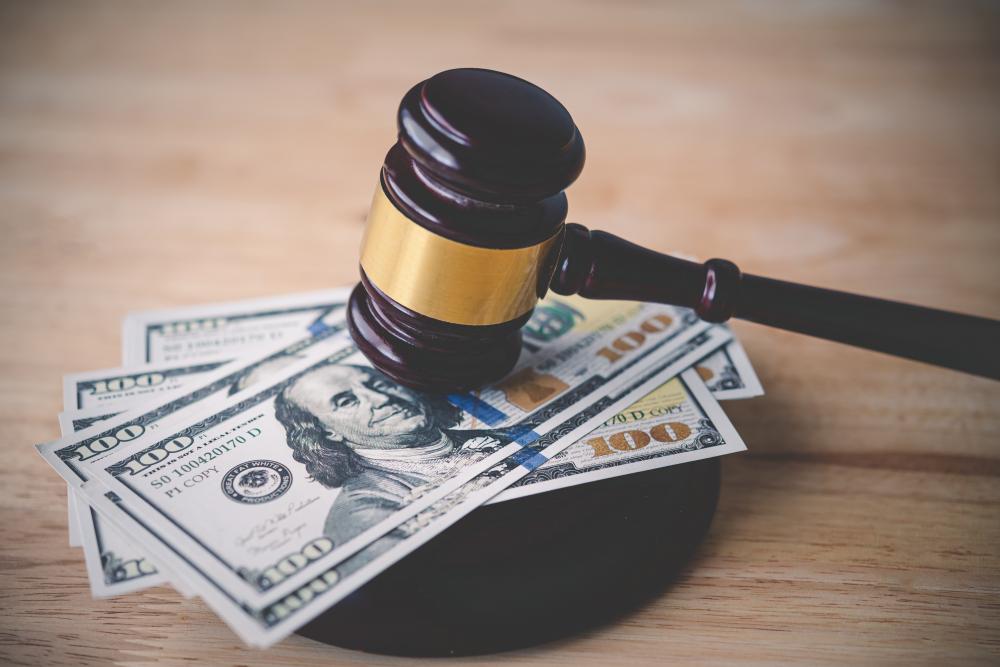
Unlocking Financial Freedom
Embarking on a journey towards financial liberty often seems like a daunting task, especially when the weight of debt is pressing down on your shoulders. At Brooks Law Office, we’ve dedicated our practice to not just lifting this weight but empowering you to stride confidently into a future unburdened by past financial missteps. As a seasoned Bankruptcy Attorney Bay Area, we’ve witnessed firsthand the transformative power of informed legal intervention and personalized debt relief strategies.
The Path Through Bankruptcy
Understanding Your Options
The decision to file for bankruptcy is monumental and comes with its share of apprehensions. Our role is to demystify the bankruptcy process, making it as transparent and understandable as possible. With a focus on Chapter 7 and Chapter 13 filings, we guide our clients through each step, ensuring they’re well-informed and prepared for the road ahead.
Personalized Legal Strategies
Every financial situation is unique, so blanket solutions simply do not work. At Brooks Law Office, we tailor our legal advice and strategies to suit your specific circumstances. Our goal is to provide a custom-fit solution that addresses not just the symptoms of financial distress but its root causes, leading to lasting stability and growth.
Overcoming Financial Obstacles
Whether it’s stopping collection lawsuits, avoiding car repossession, or preventing home foreclosure, our comprehensive approach to bankruptcy and debt relief has helped hundreds navigate through their financial storms.
Rebuilding Your Financial Future
Credit After Bankruptcy
One of the biggest concerns our clients voice is the impact of bankruptcy on their credit scores. We provide insights and strategies on rebuilding credit post-bankruptcy, emphasizing that financial recovery is not just about clearing debts but laying a solid foundation for the future.
Empowerment Through Education
Educating our clients is a cornerstone of our practice. By understanding the intricacies of bankruptcy law and personal finance management, individuals are better equipped to make informed decisions and avoid future pitfalls. Our commitment extends beyond legal representation to include financial literacy and empowerment.
Why Choose Brooks Law Office
-
Decades of specialized experience in bankruptcy law.
-
A personalized approach that sees beyond the numbers.
-
A track record of successful cases and satisfied clients.
-
Compassionate and professional service from start to finish.
Client Testimonials
Our clients’ success stories are what drive us to continue improving and adapting our services. The gratitude they express, coupled with the relief they experience when they achieve debt freedom, reinforces the value of our work at Brooks Law Office.
Taking the First Step
Contacting a Bankruptcy Attorney Bay Area might feel like a leap into the unknown, but it’s really the first step towards reclaiming your financial independence. We offer free consultations to assess your situation and provide clear, actionable advice. There’s no one-size-fits-all solution to financial challenges, but with our expertise and your willingness to embark on this journey, a fresh start is within reach.
Contact Us
Ready to start your journey toward financial freedom? Schedule a free consultation with Brooks Law Office today. With our expertise and compassionate guidance, we’ll navigate the complexities of bankruptcy together, paving the way for a brighter, debt-free future. Call us at 408.286.2766 and let us help you turn the page.

What Are the Differences Between Chapter 7 and Chapter 13 Bankruptcy?
Chapter 7 and Chapter 13 bankruptcy serve different financial situations and needs. Chapter 7, often called a “liquidation” bankruptcy, is designed to discharge most types of unsecured debt like credit cards and medical bills. It can be a swift process, typically taking about four to six months. However, not everyone qualifies for Chapter 7, as it requires passing a means test that compares your income to the median in your state.
On the other hand, Chapter 13 bankruptcy is more like a debt reorganization. It’s suited for individuals who have a regular income and wish to keep their property, such as a home or car, that they might otherwise lose in Chapter 7. Chapter 13 involves creating a repayment plan to pay back all or a portion of your debts over three to five years. The choice between Chapter 7 and Chapter 13 can have profound implications for your financial future, so it’s important to consult with a bankruptcy attorney who can guide you towards the best path based on your specific circumstances.
How Can I Rebuild My Credit After Bankruptcy?
Rebuilding your credit after bankruptcy might seem challenging, but it’s entirely possible with a strategic approach. Initially, your credit score will take a hit, but bankruptcy also provides a clean slate to start over. A good starting point is to obtain a secured credit card, which requires a deposit that serves as your credit limit. Utilizing this card responsibly and paying the balance in full each month demonstrates to creditors that you’re managing your finances wisely.
Another method is to become an authorized user on a family member or friend’s credit card. As long as the primary cardholder uses credit responsibly, your credit score can benefit. Additionally, taking out a small loan or a credit-builder loan from a credit union or community bank can also help, provided you make timely payments. Remember, the key to rebuilding credit is patience and consistency. Regularly monitoring your credit report for errors and staying on top of payments are crucial steps in this journey.
What Strategies Can Help Me Navigate Through Financial Challenges Post-Bankruptcy?
Navigating through financial challenges post-bankruptcy involves a comprehensive plan and a shift in how you manage your finances. Firstly, creating and sticking to a budget is paramount. This helps in tracking your spending and ensuring you live within your means. Tools and apps can make this task easier, allowing you to categorize expenses and set limits.
Additionally, establishing an emergency fund is crucial. Start small, even if it’s just a little money each month, and build it up over time. This fund acts as a buffer against unexpected expenses, reducing the need to use credit in a pinch. Education is also a significant part of navigating post-bankruptcy challenges. Investing time in learning about personal finance management can empower you to make informed decisions and recognize potential financial pitfalls before they become problems.
Why Is Choosing the Right Bankruptcy Attorney Crucial for Your Financial Recovery?
Choosing the right bankruptcy attorney is crucial because it can significantly affect the outcome of your case and your road to financial recovery. An experienced and knowledgeable attorney can guide you through the complex bankruptcy process, ensuring that your paperwork is filed correctly and deadlines are met. They can also provide invaluable advice on which type of bankruptcy is most appropriate for your situation and help protect your assets from being liquidated.
Moreover, a proficient bankruptcy attorney can negotiate with creditors on your behalf and may even manage to get your debt reduced. The attorney’s role transcends the paperwork; they offer moral support and reassurance through what can be a stressful experience. Therefore, it’s essential to choose an attorney who is not only proficient in bankruptcy law but also someone you feel comfortable working with, as this relationship can significantly impact your financial welfare.
Do you have any specific concerns or questions about your financial situation and how bankruptcy could provide you with relief? Feel free to share your thoughts or reach out for a personalized consultation.
Bankruptcy Resources
-
United States Department of Justice – U.S. Trustee Program – The U.S. Trustee Program oversees the administration of bankruptcy cases and private trustees across the country.
-
United States Courts – Bankruptcy Forms and Resources – Access official bankruptcy forms, procedural rules, and resources provided by the federal judiciary.
-
Federal Trade Commission – Filing for Bankruptcy: What You Need to Know – Learn about the basics of bankruptcy, including the types of bankruptcy and the implications for consumers.
-
Consumer Financial Protection Bureau – Credit Reports and Scores – Understand how bankruptcy affects your credit score and get tips on rebuilding credit after bankruptcy.





